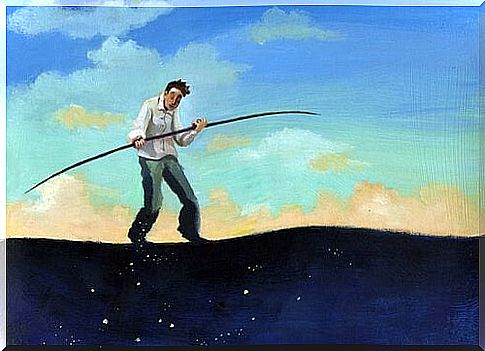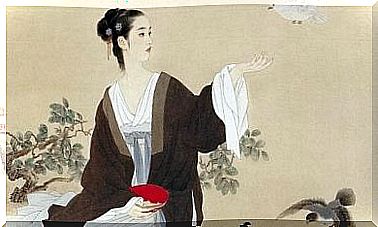The Fable About The Black Sheep And The Importance Of Balance

The fable of the black sheep was written by Italo Calvino. Like many other of his wonderful stories, this one is full of imagination. It is a story with a deep and transformative message that leaves no one indifferent.
The fable of the black sheep tells of a distant place here on earth where there was a city, where everyone – absolutely everyone – were thieves. Every single one of the inhabitants went out at night, equipped with a flashlight and a lock worshiper. With the help of these, they stole from the neighbors’ houses.
The next day everyone returns home. Of course, they then found that there had been a burglary in their house. This was not something they thought was weird, at all. They knew they were among thieves who wanted nothing better than to steal from each other. Surprisingly, people lived in total harmony in this remote city. It was a cycle. Everyone stole each other’s things and no one was left without.
In the same way it was in the trade – everything was bought and sold in fraudulent forms. Both those who bought property and those who sold them deceived each other. At the same time, the state also knew how to deceive the subjects, who in turn constantly cheated the state. The inhabitants were happy to live in this place.
In the fable, something happens that breaks with the familiar pattern. In this case, it is a man who changes everything. He came to town without warning and, instead of going out and stealing at night, he stayed at home. He read a book and smoked a pipe instead.
Thieves came to his house, but saw the light and decided not to approach it. Some residents of the city began to go hungry. If they could not steal, the cycle was broken. It was therefore decided to talk to the honest man, to ask him to think about his attitude. This was actually something that hurt everyone. If he did not want to steal himself, that was okay. But in any case, he needed to let others steal from him.

Then the honest man understood how it was. After the discussion with the villagers, he started to leave the house in the evenings and go to the river. He left it free for the others to feel comfortable with the thefts. But he did not want to be a thief himself, so within a week the house was completely empty.
According to the fable, it was the honest man’s attitude that first broke the balance, because he refused to steal. It was then always a resident who found his house intact the following day. After that, some people started collecting more than they needed.
At the same time, those who would break into the honest man’s house found that the house was already empty. This meant that they could not eat until the next night, when it was time to steal from another house. In this way, “poor and rich” arose. Some piled up, others always got too little.
Soon, those who had amassed a lot of assets decided that they no longer wanted to be robbed. At the same time, they did not want to stop stealing, because then they would also end up in poverty. So, instead, they decided to pay those who had nothing to steal. Contracts were arranged, with salaries and bonuses, so that everything was very clear and distinct.
Many in the village were confused by the changes. They did not know what to do. To remind them of their role, a police force and a prison were created. This was also done so that those who had accumulated a lot would not have to feel that their assets were threatened.
After all, the thefts did not disappear. Everyone kept stealing, but now the rules of the game were different. Some did not work, but paid others to steal. And the rich were not allowed to steal from, then they ended up in prison.

No one could understand how everything could have changed so much. Either way, they had to adapt, because they needed to survive. So what happened to the honest man? He simply starved to death. He was the only one who refused to steal and the only one no one could understand. And then the fable about the black sheep ends. All similarities with reality are, of course, more than just a coincidence.









